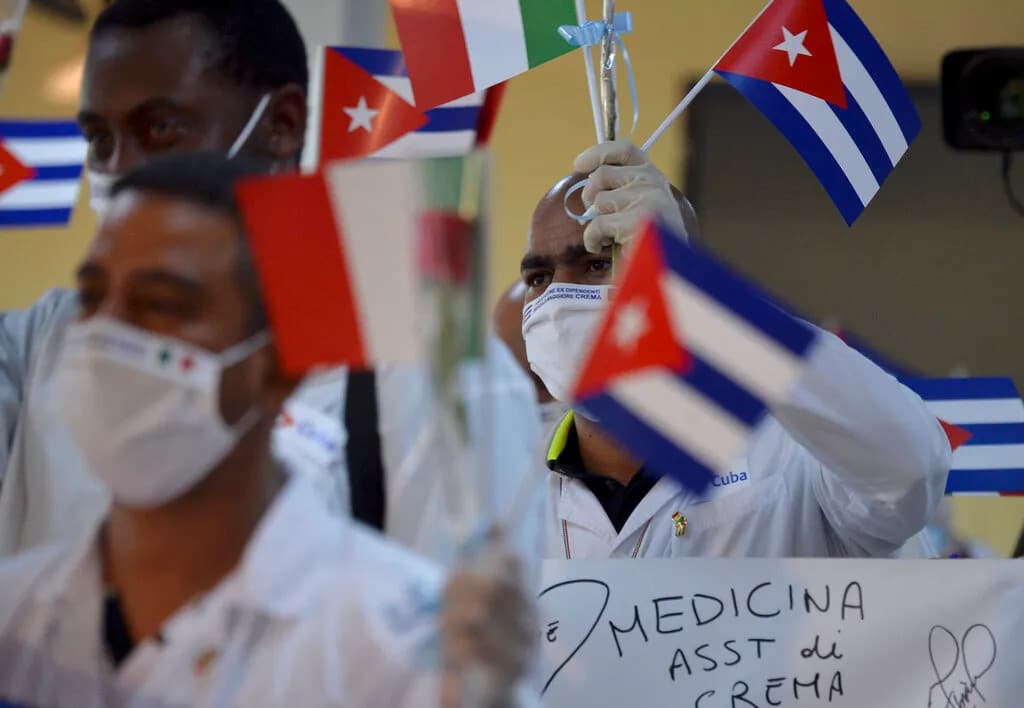A Step Toward Justice with Cuba’s Medical Slavery Model

In a welcome and long-overdue development, the Prime Minister of the Bahamas recently announced that his government will begin paying Cuban doctors directly for their services in the country, ending the exploitative arrangement long orchestrated under Cuba’s so-called “medical missions.”
This move, made public following a meeting with U.S. Secretary of State Senator Marco Rubio, is more than a bureaucratic shift—it’s a decisive step toward ending one of the most pervasive and underreported forms of modern slavery operating today under the guise of international solidarity.
Cuba’s medical missions have long been hailed in diplomatic circles and international media as altruistic gestures—evidence of the regime’s commitment to global health. But behind the carefully curated narrative lies a brutal and coercive labor scheme. More than 22,000 Cuban medical professionals are currently stationed in over 50 countries, not as free agents, but as state-controlled commodities. In 2022 alone, Havana raked in approximately $4.9 billion from these missions—revenue earned not through fair trade, but through the systematic exploitation of its healthcare workers.
According to testimony from Cuban doctors who have defected from these missions, the regime routinely withholds between 75% and 95% of their wages. These professionals are often denied access to their own passports and credentials, placed under constant surveillance, subjected to curfews, and prohibited from interacting freely with local populations. If they attempt to leave the program, they face retaliation not just abroad, but also against their families back home.
In different occasions, the UN Special Rapporteur on contemporary forms of slavery expressed serious concern about the presence of these programs in countries like Italy, Qatar, and Spain. The rapporteur cited credible reports of coercion, movement restrictions, surveillance, and wage theft—elements consistent with forced labor under international law.
But while the Bahamas’ decision to pay Cuban health workers directly is a welcome shift, it does not fully liberate them from the yoke of Havana. These professionals may now receive their wages without state interference—but their passports remain confiscated, their families back home remain vulnerable, and their ability to leave or speak freely is still tightly controlled by the Cuban dictatorship. Without structural change in Cuba itself, even direct payments can only go so far in protecting these workers’ fundamental freedoms.
By deciding to pay Cuban medical professionals directly, the Bahamas is doing more than correcting an unjust practice—it is challenging the moral legitimacy of Cuba’s entire medical export system. This small Caribbean nation is sending a clear message: Human rights cannot be sacrificed at the altar of ideological diplomacy.
Other governments in Latin America, Africa, and Europe should follow suit. Continuing to work through the Cuban state to hire medical workers is tantamount to financing a system of servitude. It’s time to stop enabling the Cuban regime’s propaganda and start defending the dignity of the individuals behind the white coats.
This decision by the Bahamas should not be an exception—it must be a precedent.
Hernán Alberro is a Senior Fellow with VOC’s Latin America Program. All opinions are those of the author and do not necessarily represent the position or views of the institutions they represent or VOC.

